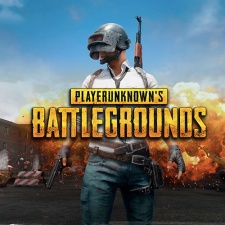It's not exactly a shock that PUBG Corp has gone legal against Epic Games.
There was a fair bit of sabre rattling back in September ahead of the launch of Fortnite: Battle Royale and the Korean-based games firm has already filed lawsuits against NetEase for its own battle royale games.
It's unclear yet whether the case will actually go to trial; the lawsuit was filed in Korea back in January, according to The Korea Times, and it remains to be seen whether a judge will actually take the case. As far as we can tell, Epic hasn't filed a motion to dismiss either, so it could well go to trial.
Right now, much ink has been spilt mocking PUBG Corp's decision to file such a lawsuit, but not much has been spent discussing what happens if the company actually wins.
The meat of the lawsuit is that Epic infringed Playerunknown's Battlegrounds' copyright by releasing a battle royale game in Fortnite. Presumably, this means that it feels it has some ownership of many of the mechanics employed in what we now know as battle royale; 100 players are dropped onto a map and have to fight to the death as the play area closes.
Thus, if PUBG Corp is vindicated and wins against Epic a strange precedent will be set; developers will be unable to borrow mechanics from other games and innovate upon them, lest they face legal action.
"I want this genre of games [battle royale] to grow," the modder turned PUBG creator told BBC NewsBeat.
"For that to happen you need new and interesting spins on the game mode. "If it's just copycats down the line, then the genre doesn't grow and people get bored."
"There's no intellectual property protection in games. "In movies and music there is IP protection and you can really look after your work. In gaming that doesn't exist yet, and it's something that should be looked into.
"Some amazing games pass under the radar. Then someone else takes the idea, has a marketing budget, and suddenly has a popular game because they ripped off someone else's idea. I think it's something the industry needs to look into. You're protecting the work of artists basically. Games are art for a large part, and so I think it's important they're protected."
Until now, gameplay mechanics haven't really been protected under copyright law, and 'copycat' projects are nothing new. Back in the 90s, there was a wave of video games that resembled id Software's Doom. Back then, people spoke about copycat projects, but in reality, we were watching the emergence of the first-person shooter market.
It's understandable that Greene and PUBG Corp are sore about Fortnite coming along and sneaking off with a slice of their success. But at the same time, iteration is how this industry grows. Without people copying Doom, we wouldn't have the first-person shooter genre as we know it today. This industry - for better or worse - is built upon a cycle of iteration and improvement. So long as a project is actually augmenting what's already there, that seems fair.
Our medium is a new one, so there are many practices that happen that you wouldn't see within other mediums. And of course, not every company is litigious as PUBG Corp appears to be. But if there is legal precedent, we may see bigger companies becoming more confident when it comes to protecting their gameplay mechanics. Of course, developers shouldn't be straight-up copying mechanics from other video games; there should always be improvement and innovation. But if there's the threat of another company being able to go legal over similarities, that could be a deterring force.
If developers were afraid to even go close to mechanics from other games, that could potentially have a stifling effect upon our market.
That said, maybe this is just part of our industry's awkward growing pains. But if PUBG Corp does win this lawsuit, it will have a far-reaching effect upon the rest of the market.













